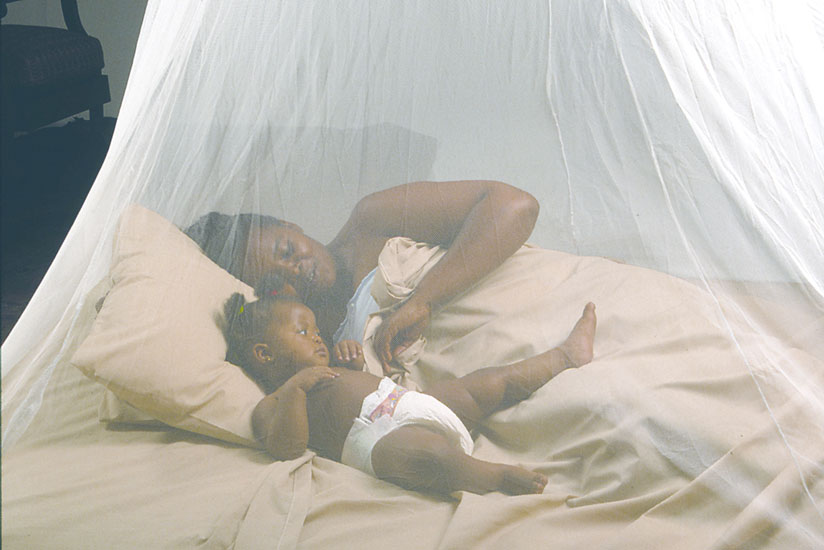Most mosquito bites occur at night but some mosquitoes reach out for blood even during the day. Fortunately, malaria alleviation moved a step forward, last year, with the World Health Organisation reporting a reduction in deaths by half, but what does this mean for sub-Saharan Africa, the most affected region?


Most mosquito bites occur at night but some mosquitoes reach out for blood even during the day. Fortunately, malaria alleviation moved a step forward, last year, with the World Health Organisation reporting a reduction in deaths by half, but what does this mean for sub-Saharan Africa, the most affected region?
When insecticide-treated nets are used properly by three-quarters of the people in a community, malaria transmission is cut by 50 per cent, child deaths are reduced by 20 per cent, and the mosquito population drops by as much as 90 per cent.
Statics also indicate that 90 per cent of all malaria deaths occur in sub-Saharan Africa and malaria costs an estimated $12 billion in lost productivity in Africa.
It is estimated still that only 5 per cent of children in sub-Saharan Africa currently sleep under insecticide-treated net. But how is the situation like in Rwanda?
A rise in malaria cases
The Minister for Health, Dr Agnes Binagwaho, blamed the current rise in malaria incidences on substandard bed nets supplied by Netprotect.
Netprotect is a Danish company that was hired on an estimated $15 million to supply over three million nets in 2013 only for it to supply substandard nets.
"Now three million mosquito nets currently in use within the country are less efficient because they do not have enough medicine to kill mosquitoes,” Dr Binagwaho said.
This is unfortunate considering that malaria contributes about 24 per cent of the total global death burden.
However, recommendations suggest eradication of malaria to be handled in a holistic manner, and that users should know that proper usage is much more effective than how defective a net is, because even a bad net will not let in mosquitos unless it torn or misused.
Mosquito insecticide-treated nets have long been used in the fight against mosquito bites, and have been shown to give substantial protection against malaria, but no room to guarantee effectiveness hence calling for a set of operational procedures to be followed by everyone.
Kibagabaga Hospital director Osee Sebatunzi advises that for nets to be effective, they should be re-treated promptly depending on the instructions and a user should properly deploy it around the bed each night before going to sleep.
According to Dr Sebatunzi, the use of mosquito nets should be accompanied by similar preventative strategies like erosion of stagnant water, slashing bushes around the house, disposing off cans and containers that are likely to harbor mosquitoes.
"Old, torn nets are dangerous to individuals and should be disposed of while the more people in a given community utilise nets the safer it becomes for everyone to fight against malaria,” Dr Sebatunzi adds.
"All mosquito nets should be kept in good condition by the user.”
Torn, treated and untreated bed nets
In similar studies done by WHO, it is revealed that using untreated bed nets in good condition is associated with a significantly lower prevalence of malaria (51 per cent protection).
The findings suggest that an untreated net, provided that it is in relatively good condition, can protect against malaria, although points out that untreated nets do not constitute a good intervention: just a single small hole is enough to render the net useless.
This means that others in the same room or shelter are not protected, and may receive more mosquito bites.
Way forward
Focus by the ministry is to ensure that malaria cases go down up to zero. The intervention strategies are many but for effective control of malaria, the public should play an important role as well.
Dr Tekle Gebre Egziabher, a gynaecologist at Rwanda Military Hospital, Kanombe, says expectant mothers should attend and as well follow advice given in their antenatal clinics.
"Antenatal clinics provider are meant to guide and provide information concerning several measures that also include malaria prevention strategies such as the operation of bed nets,” Dr Egziabher says.
"Failure to follow the guidelines on malaria prevention causes the disease to remain a threat in expectant individuals and more so likely to cause complications such as, pulmonary oedema, renal failure, foetal loss, celebral palsy in the foetus among so many others such as miscarriages.”
Minister Dr Binagwaho urged Rwandans to continue using the nets as government looks into ways to have them replaced to minimise risks of being infected. After distributing 900,000 thousand nets, the ministry will distribute two million more nets next month.


